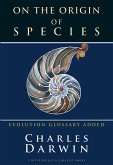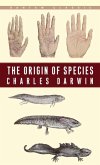Since Samuel Butler published "Life and Habit" thirty-three [vii] years have elapsed-years fruitful in change and discovery, during which many of the mighty have been put down from their seat and many of the humble have been exalted. I do not know that Butler can truthfully be called humble, indeed, I think he had very few misgivings as to his ultimate triumph, but he has certainly been exalted with a rapidity that he himself can scarcely have foreseen. During his lifetime he was a literary pariah, the victim of an orga-nized conspiracy of silence. He is now, I think it may be said without exaggeration, universally accepted as one of the most remarkable English writers of the latter part of the nineteenth century. I will not weary my readers by quoting the numerous tributes paid by distinguished contemporary writers to Butler's originality and force of mind, but I cannot refrain from illustrating the changed attitude of the sci-entific world to Butler and his theories by a reference to "Darwin and Modern Science," the collection of essays published in 1909 by the University of Cambridge, in commemoration of the Darwin centenary. In that work Professor Bateson, while referring repeatedly to Butler's biological works, speaks of him as "the most brilliant and by far the most interesting of Darwin's opponents, whose works are at length emerging from oblivion." R. A. STREATFEILD. November, 1910.
Dieser Download kann aus rechtlichen Gründen nur mit Rechnungsadresse in A, B, BG, CY, CZ, D, DK, EW, E, FIN, F, GR, H, IRL, I, LT, L, LR, M, NL, PL, P, R, S, SLO, SK ausgeliefert werden.









